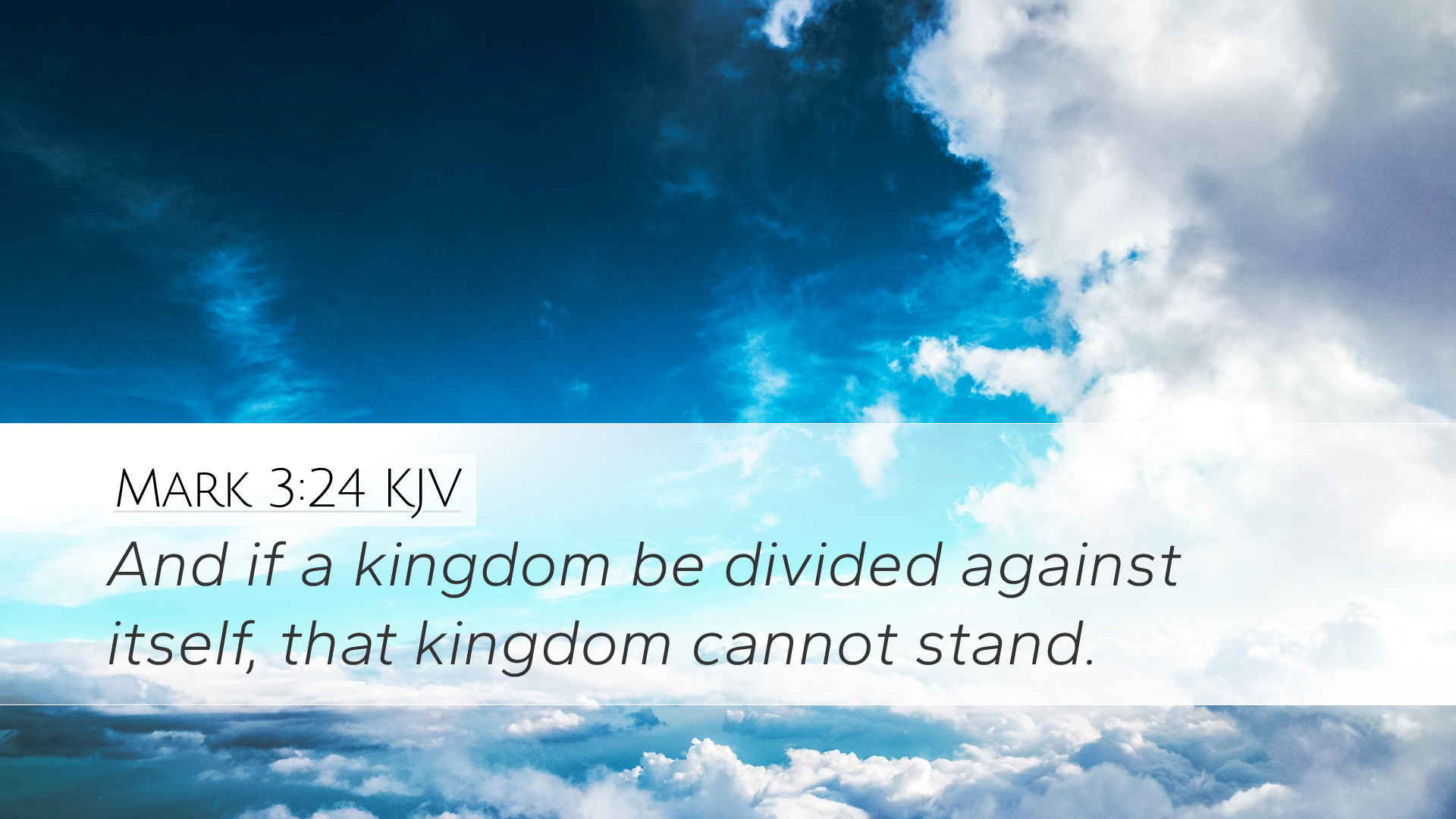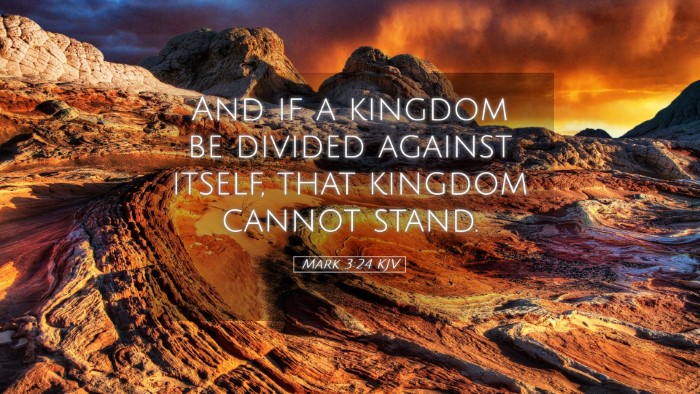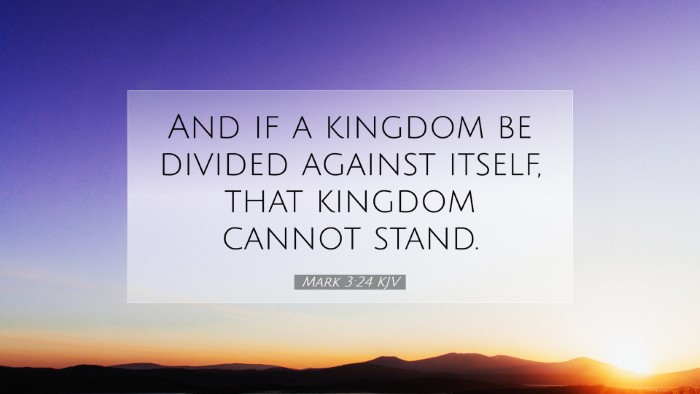Commentary on Mark 3:24
Verse: "And if a kingdom be divided against itself, that kingdom cannot stand." (Mark 3:24)
Introduction
This verse is part of a significant dialogue that Jesus had concerning the accusations against Him of working by the power of Beelzebub. Here, He provides a profound statement regarding unity and conflict, which can be applied to various aspects of human life—including the Church, the family, and society.
Contextual Analysis
In the context of Mark 3, Jesus faces opposition from the religious leaders who claim that His miracles are performed through demonic powers. In this setting, He employs logic to counter their claims, illustrating the irrationality of their accusations.
Insights from Public Domain Commentaries
Matthew Henry's Commentary
Matthew Henry emphasizes that this verse teaches the principle of unity within a kingdom. He points out that division leads to downfall, not only in human kingdoms but also in the spiritual realm. Henry asserts that if the devil were to work against himself, it would lead to his own destruction, which is a self-evident truth. This statement promotes the understanding of spiritual warfare, indicating that unity is essential for strength.
Albert Barnes' Notes on the Bible
Albert Barnes expounds that Jesus uses this principle of division to nullify the arguments of His accusers. He explains that a kingdom divided internally cannot maintain its power or purpose; thus, to claim that Jesus casts out demons by demonic power is fundamentally flawed. Barnes elucidates that spiritual authority cannot contradict itself and highlights the necessity for communities, whether spiritual or secular, to uphold a unified stance to flourish.
Adam Clarke's Commentary
Adam Clarke delves into the implications of this statement in a broader sense. He notes that this verse illustrates the consequences of discord in any form, emphasizing that a cooperative relationship is vital for any group’s success. Clarke warns that internal strife leads to ruin, and this principle extends to the Church, urging believers to maintain harmony for it to thrive. He also infers that this truth applies to families and individual relationships, emphasizing the universality of the principle.
Theological Significance
Mark 3:24 poses important theological implications about the nature of God’s kingdom. The verse sheds light on the nature of unity in the body of Christ, illustrating that internal conflict and division hinder the church's mission. It also forms a framework for understanding the operations of spiritual authority, illustrating that God’s power is not contradictory but harmoniously directed toward His purposes.
Application to the Church
- Unity: The church must work together in harmony to effectively spread the Gospel. Disunity can severely compromise its mission.
- Spiritual Warfare: Understanding that spiritual forces are at work, the church must be vigilant against internal divisions that can be exploited by the enemy.
- Leadership: Leaders within the church should foster an environment that promotes unity and collaboration among its members.
Application to Families
- Communication: Families must prioritize open communication to prevent misunderstandings that can lead to division.
- Shared Values: Emphasizing shared beliefs and values strengthens familial ties and promotes unity.
- Resolution of Conflict: Addressing conflicts promptly is crucial to maintaining harmony and preventing long-term divisions.
Conclusion
Mark 3:24 serves as a potent reminder of the necessity of unity in any collective endeavor, particularly in the spiritual realm. The teachings from widely respected commentators such as Matthew Henry, Albert Barnes, and Adam Clarke reinforce the message that a divided entity is fundamentally flawed and cannot sustain itself. This verse encourages believers to pursue unity, both in the Church and in their personal relationships, underlining that strength lies in harmony rather than division.


